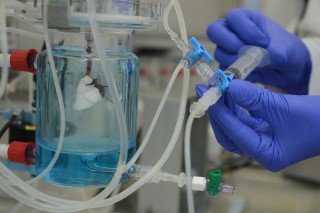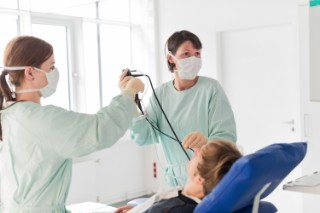
Fraunhofer ITEM researchers use the ex-vivo model of the isolated perfused rat lung (IPL). In this alternative model, they studied the transition of a fluorescence-labeled substance into the perfusate, which served as blood substitute in this model. Two different methods were used to generate aerosols with different droplet sizes.
more info Fraunhofer Institute for Toxicology and Experimental Medicine
Fraunhofer Institute for Toxicology and Experimental Medicine







